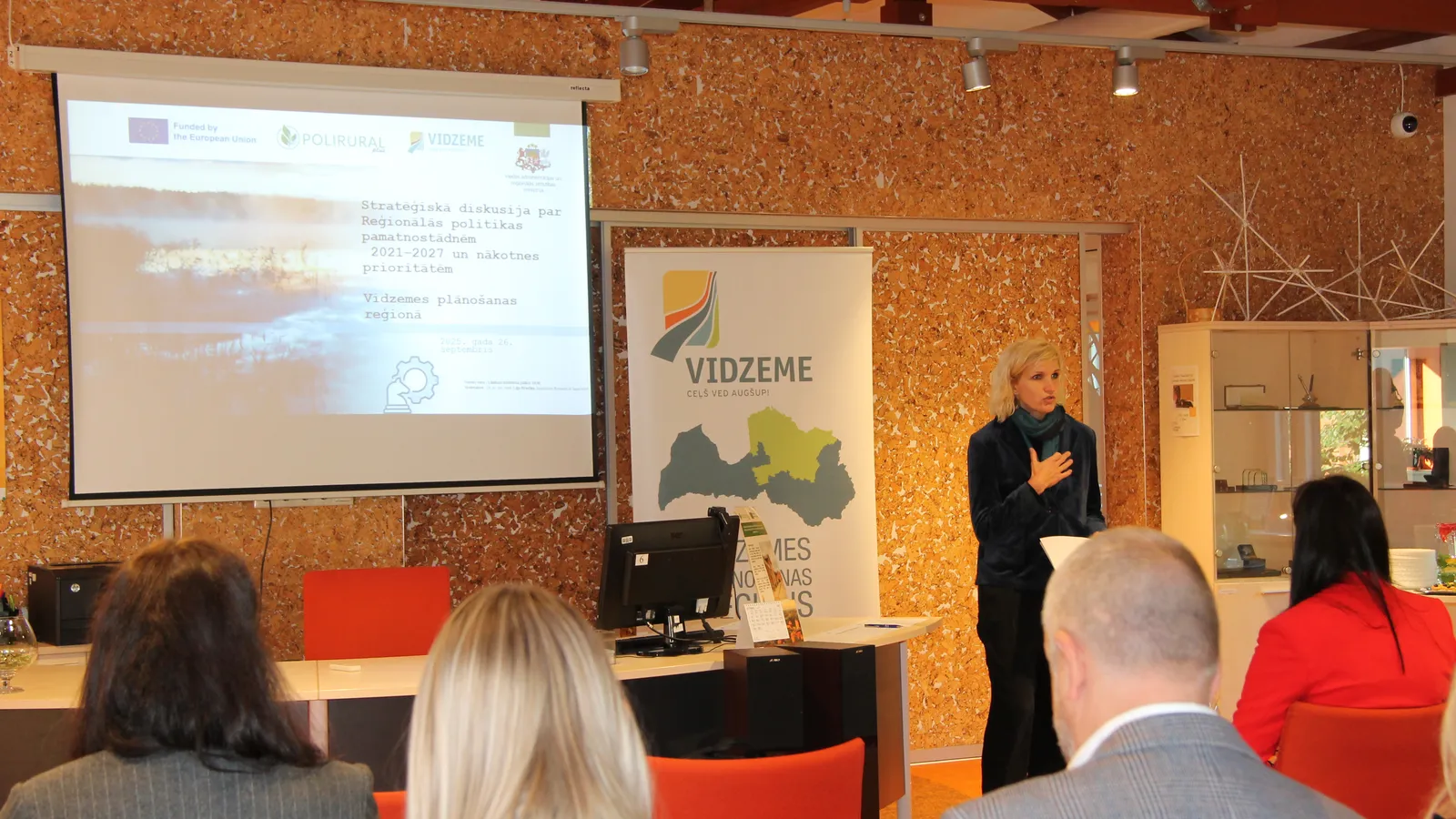On 26 September 2025, a strategic discussion took place in Limbaži with the participation of the Vidzeme Planning Region, municipalities of the region and the Ministry of Smart Administration and Regional Development. The meeting focused on Latvia’s Regional Policy Guidelines 2021–2027 and Vidzeme’s development priorities for the next programming period. Municipal representatives assessed national support instruments, reviewed policy principles and implementation conditions, and evaluated their relevance to territorial needs. The event brought together municipal decision-makers — including mayors and chairpersons — as well as sectoral experts and department specialists from local governments.
This activity forms an essential part of the PoliRuralPlus project, within which the Vidzeme Planning Region is developing its Regional Action Plan (RAP). In line with the project’s Multi-Actor Approach (MAA), the discussion ensured broad involvement of municipalities, businesses, academia and national institutions. The insights gathered on policy implementation, support instruments and territorial needs will be used in the RAP to ensure that future development actions are evidence-based and grounded in real conditions. The results also contribute to defining Vidzeme’s long-term development vision towards 2050.
Vidzemes demographic and economic profile was presented, highlighting a large territory with low population density, strong agricultural and forestry sectors, dominance of SMEs, and uneven development dynamics between regional centres and border territories. Long-term demographic trends — population decline and ageing — continue to shape development potential, while positive net migration in several municipalities demonstrates internal territorial differences. Municipalities also emphasised the strategic importance of modern housing, flexible investment instruments and predictable support mechanisms for local business growth and infrastructure.
Participants stressed that effective planning requires timely, detailed and accessible data, noting cases of outdated information, fragmented data systems and limited indicators on service accessibility, mobility and environmental quality. Strengthened cooperation between institutions and coordinated data access at regional level were identified as key preconditions for effective planning and programme implementation.
“The future development of Vidzeme depends on our ability to turn data into decisions and ideas into action — and today we are shaping this transition together.” Insights from the discussion will feed into the mid-term evaluation of Latvia’s Regional Policy Guidelines and the design of future support instruments. They will also be used to further develop Vidzeme’s strategic planning framework, including the monitoring system of the Vidzeme Development Programme. These activities are supported by the EU-funded PoliRuralPlus project.
Insights from the discussion will feed into the mid-term evaluation of Latvia’s Regional Policy Guidelines and the design of future support instruments. They will also be used to further develop Vidzeme’s strategic planning framework, including the monitoring system of the Vidzeme Development Programme. These activities are supported by the EU-funded PoliRuralPlus project.




Existing Comments